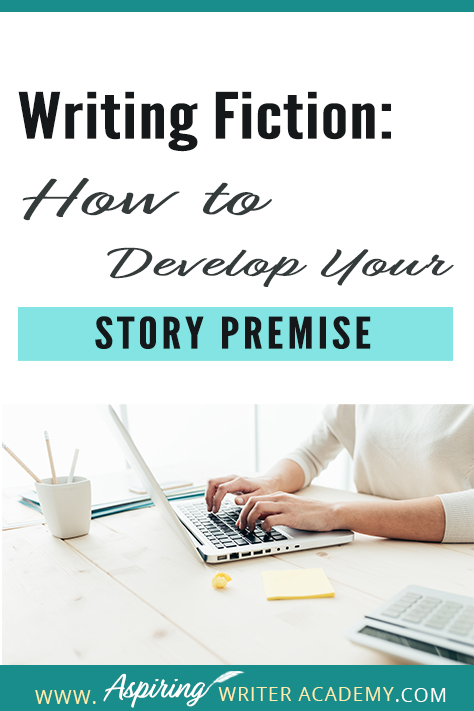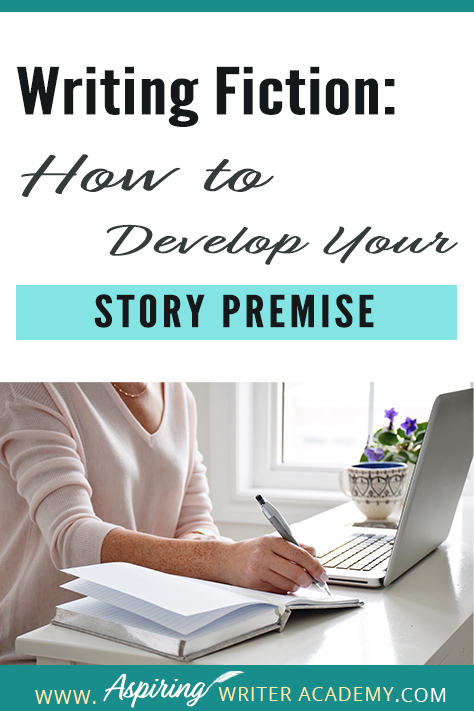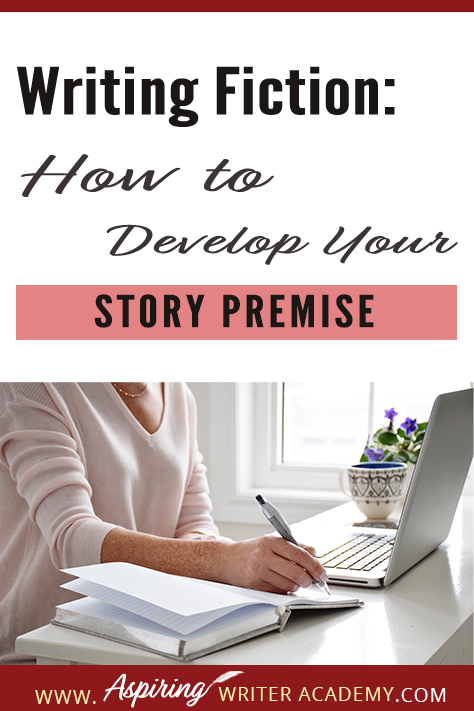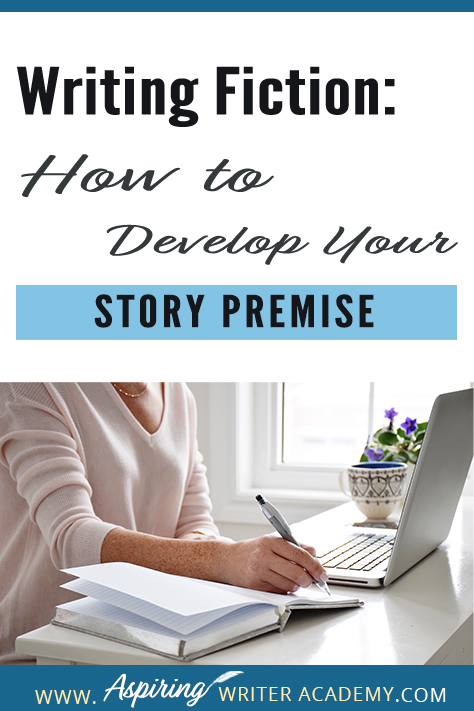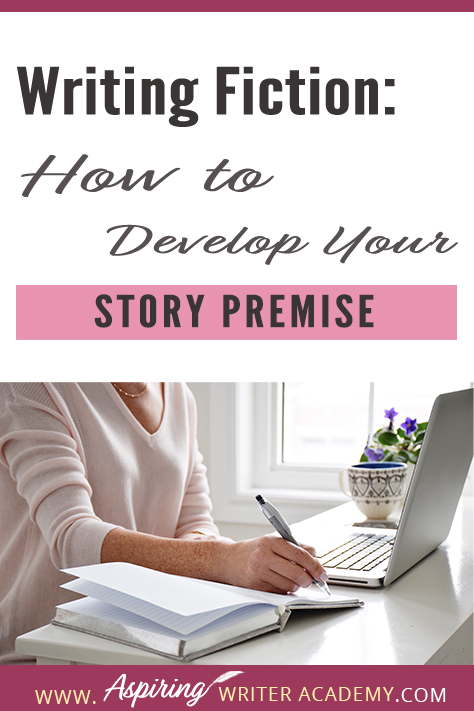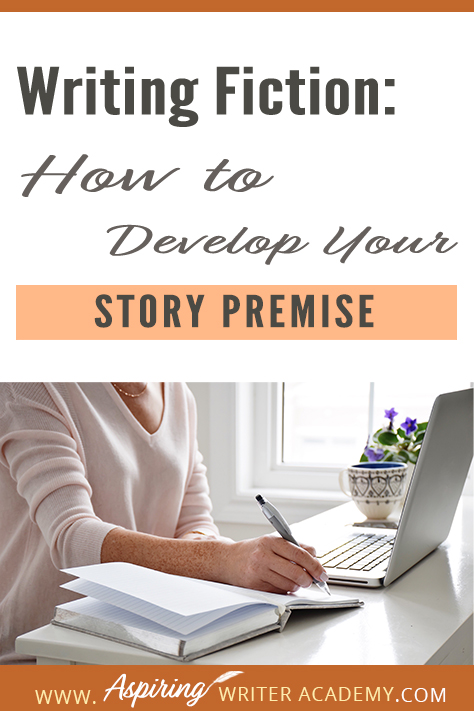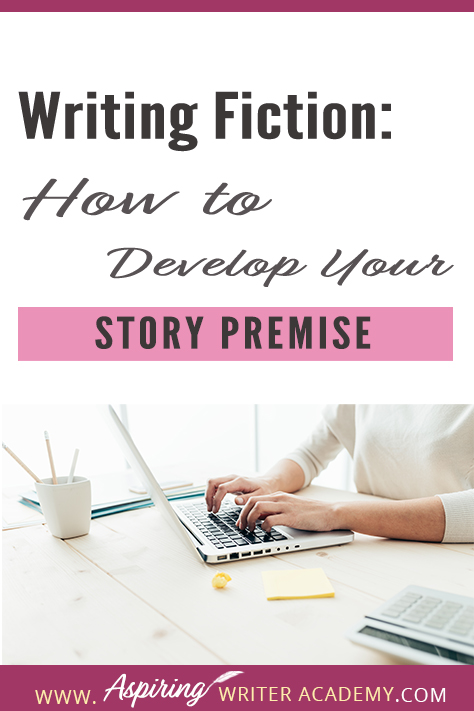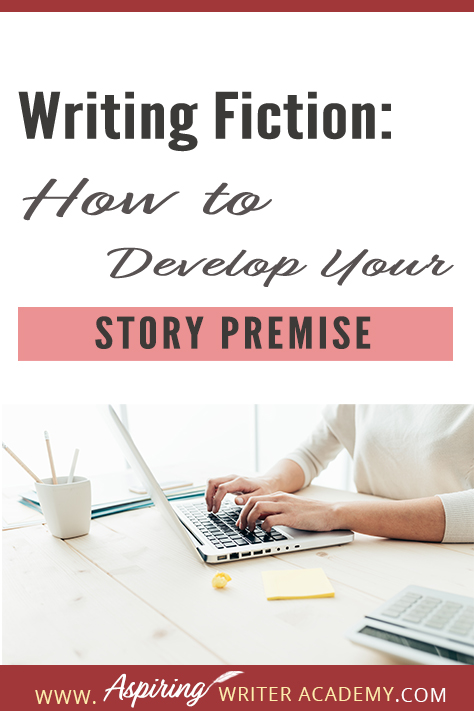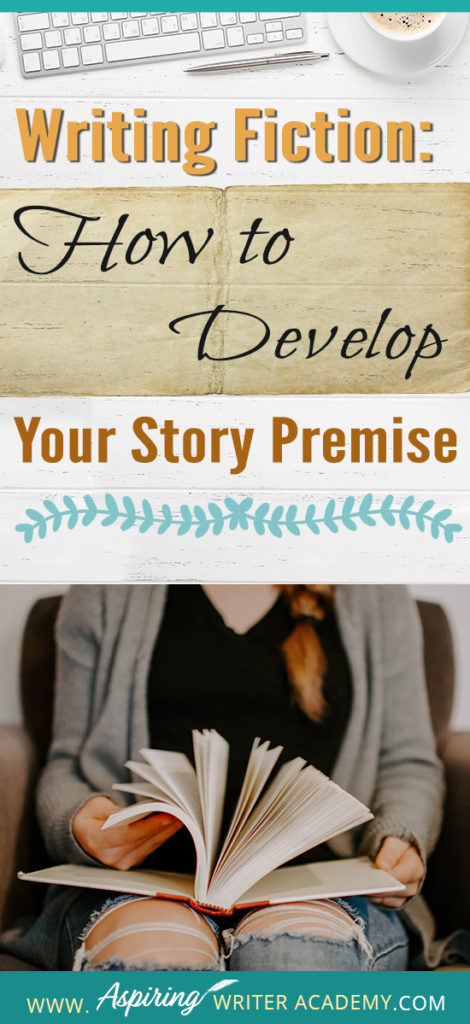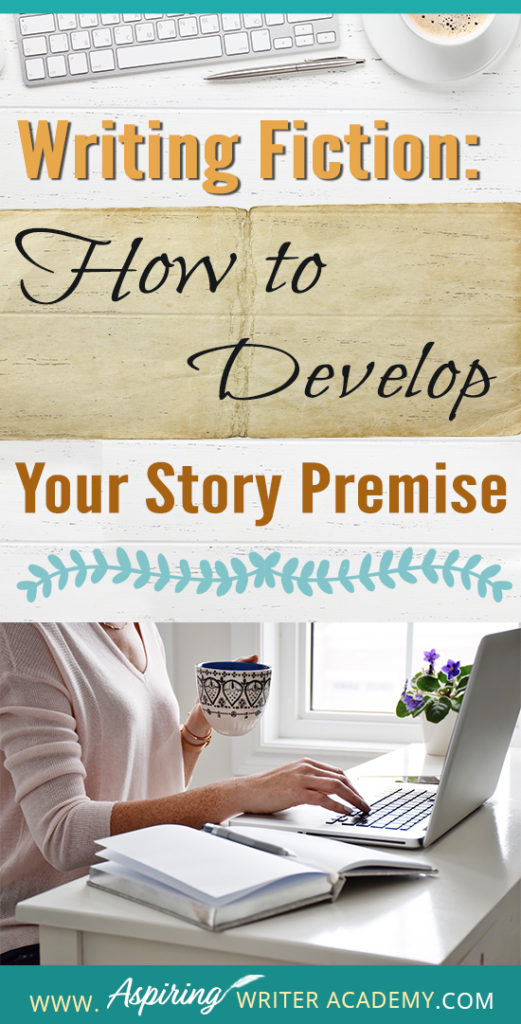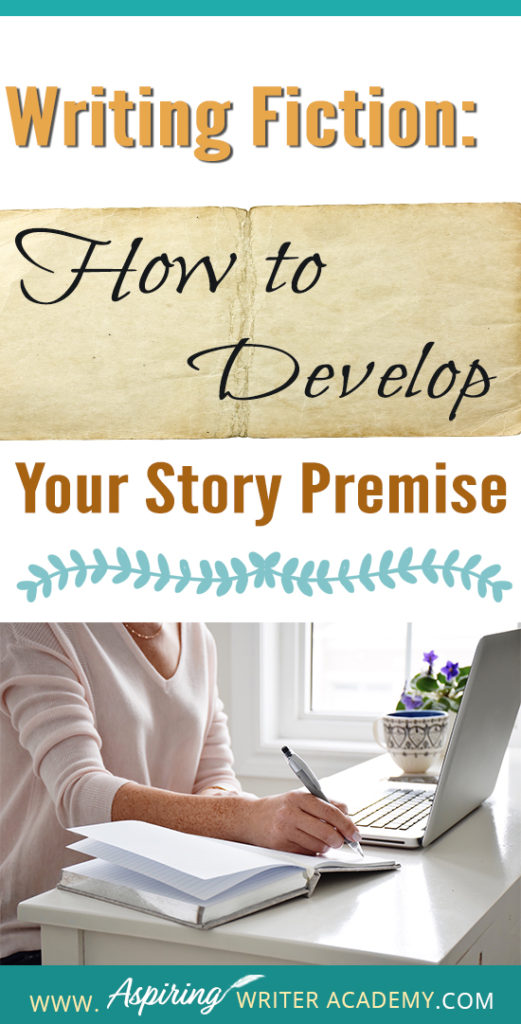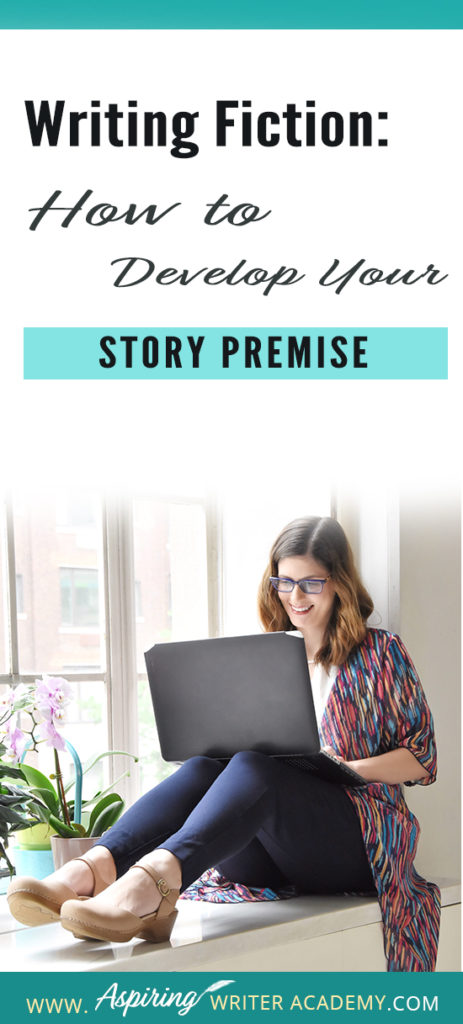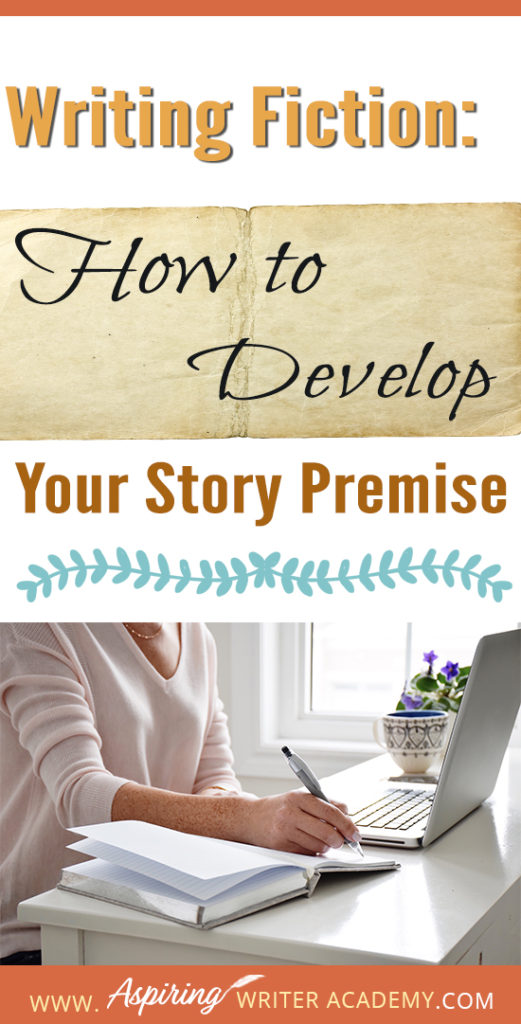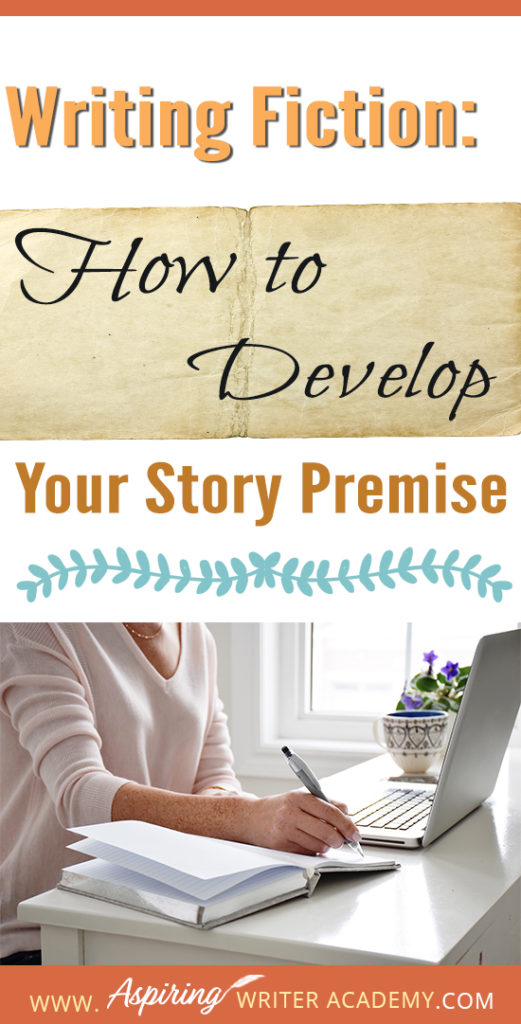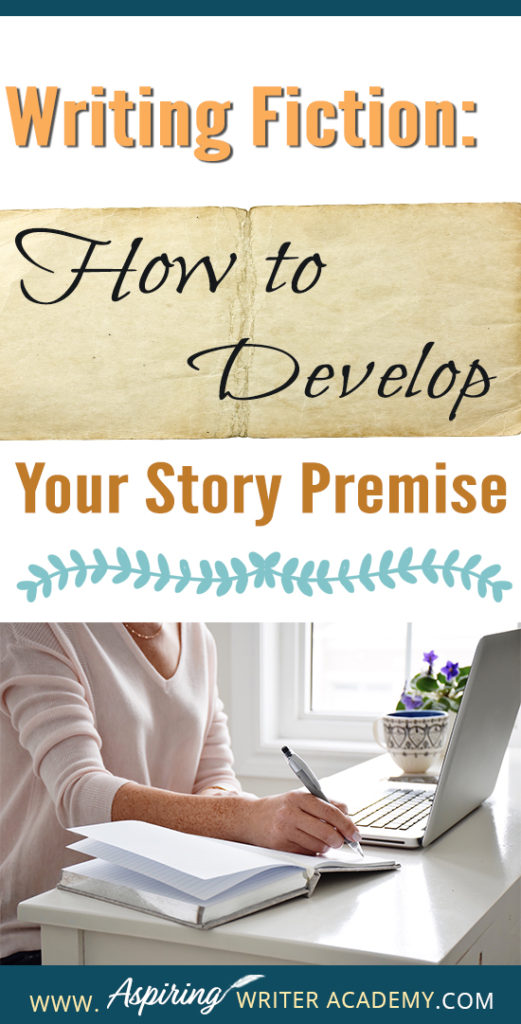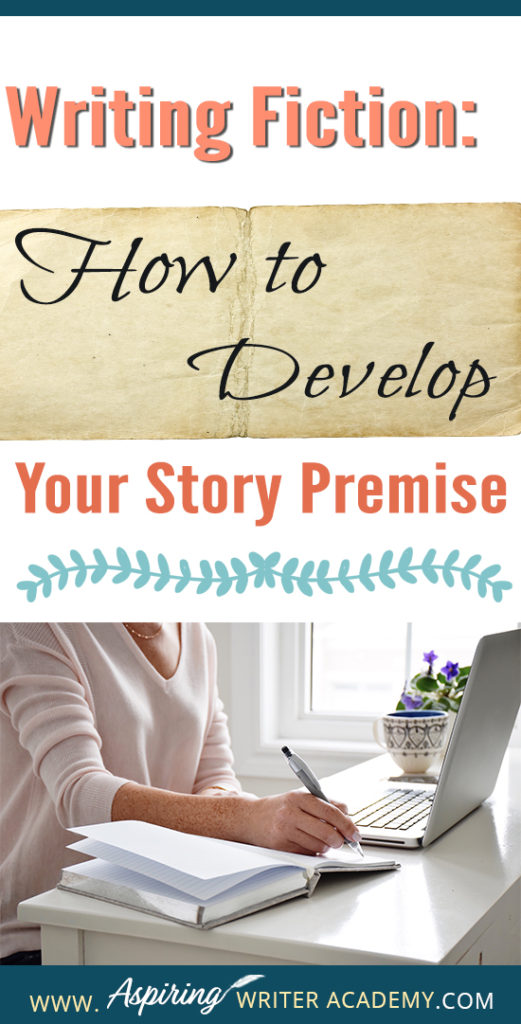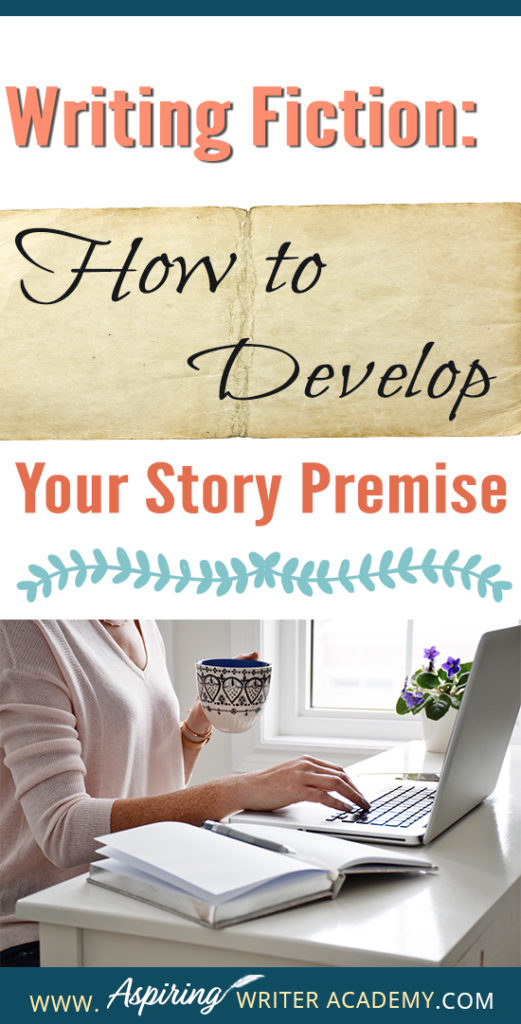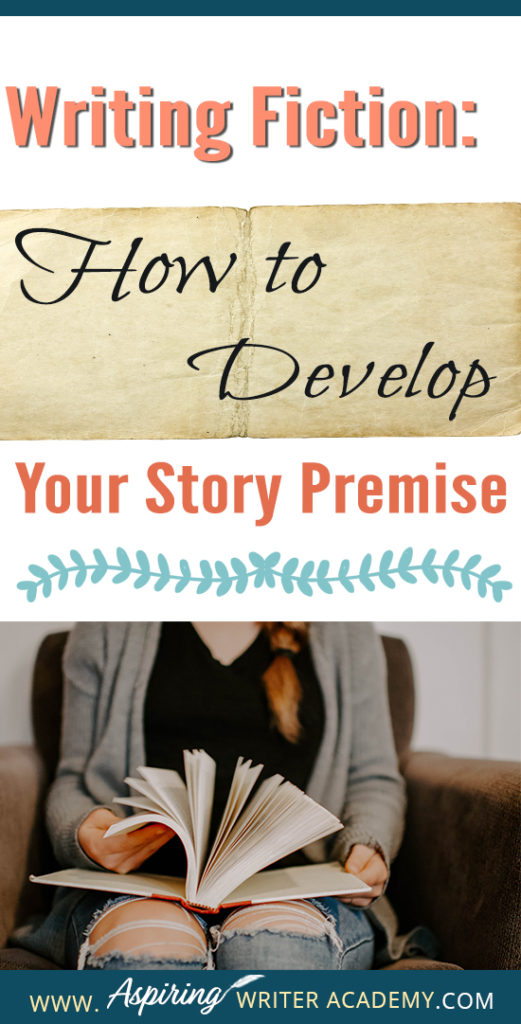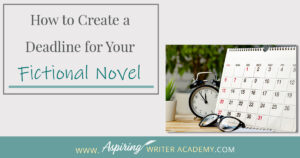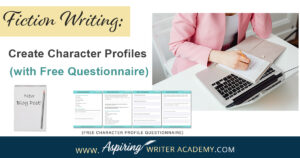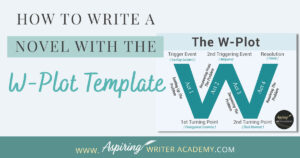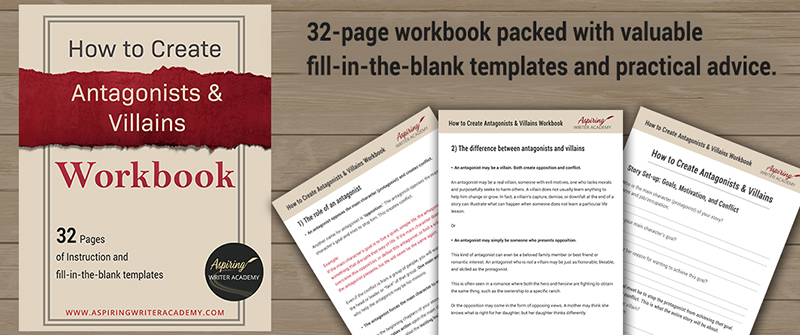Writing Fiction: How to Develop Your Story Premise
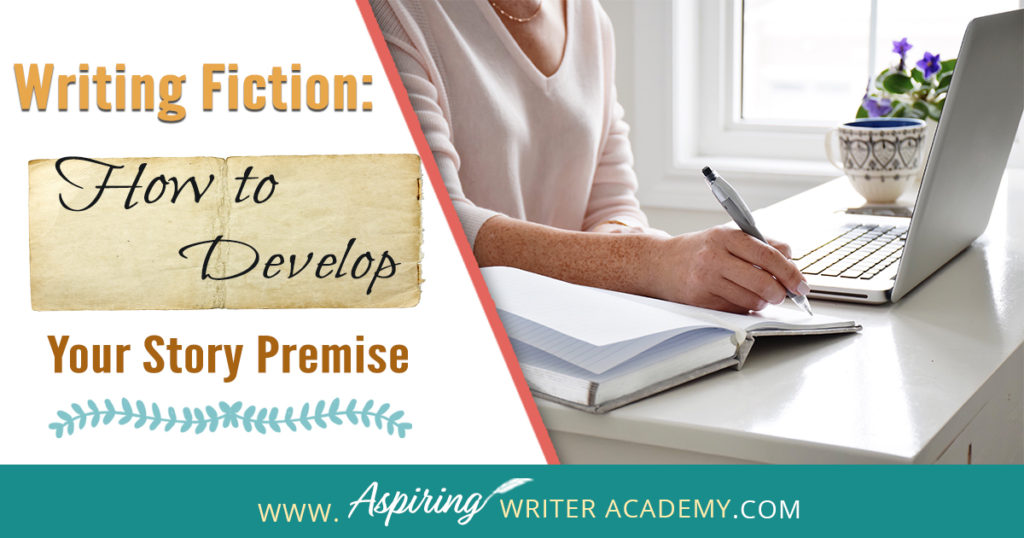
“What is your story about?”
Can you answer that question about your work-in-progress in one, clear, concise sentence?
If not, you may need to take some time to craft your story premise.
A story premise, also referred to as a logline, is a single sentence (sometimes two) that acts as the foundation of your story.
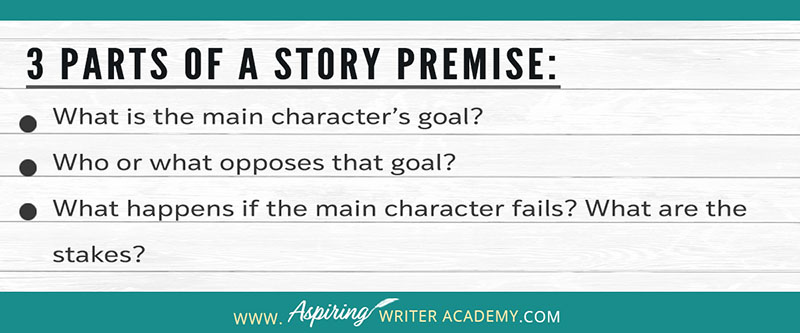
A few Examples:
Isabella must use her wits to outsmart her opponents on the televised game show so she can win the cash prize that will save her ranch from foreclosure.
Robert must find the hidden treasure within three days, despite trouble from his nosy neighbor, and pay the evil pirates who hold his sister hostage before she is tossed in the sea.
Tom must escape the aliens and deliver key information to his military commander before the little green men enact their plan to annihilate the earth.
Sarah must step forward and testify at the trial, despite threats to her own life, to save the man she loves from going to jail for a crime he didn’t commit.
Jacob must overcome his fear of rejection and convince Lucy that he loves her before she leaves for London the following week and marries someone else.
What are the benefits of having a story premise?
The most important reason to create a story premise is to gain clarity for yourself, the author. Everything that happens in your story should hinge upon the answers to the three core questions listed above. This helps you stay focused as you are writing so you do not run off on a tangent and write a scene that has nothing to do with your story’s plot.
A story premise is also useful when pitching to agents and editors.
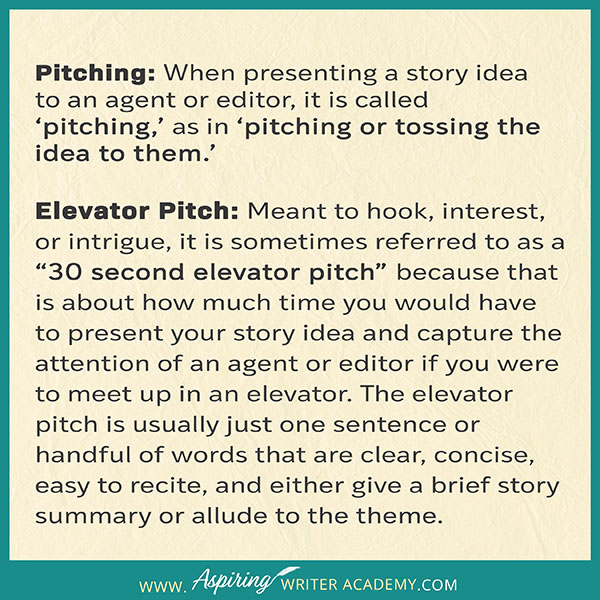
When at a writer’s conference, your scheduled appointment with an agent or editor will only last for about 10 minutes. During that time, you need to introduce yourself, and your work, and leave time for additional Q & A. Having a one-line story premise that can be delivered in a minute or less can leave a lasting impression that is clear and memorable.
Many agents and editors of traditional publishing houses also require that you include the story premise or one-line pitch in the query letter you submit with your book proposal.
In fact, it may be helpful to have a one-line story premise ready to recite to anyone who asks what your book is about. If you take too long in detailing your story, you will start to see the other person’s eyes glaze over with impatience and boredom. Get to the main point. They don’t need to know extraneous details about each character or hear about all your sub-plots.
A short, concise, story premise is also handy to use for marketing. You can post your one-liner on social media and on promotional materials like postcards and bookmarks.
How do you create a premise for your story?
- First, start with your main character. A good premise will give the character a couple of key descriptors and a goal. What does this character want or need?
- What is the danger or opposition? Who is trying to prevent them from achieving their goal?
- And finally, what will happen if the main character fails to achieve the goal? What are the disasterous consequences? What are the stakes that make achieving this goal critical?
Template:
Character: (personality adjective + occupation/or other key descriptor)
A daring, widowed rancher must (story goal to overcome the opposition): discover the identity of her husband’s murderer
(Or this will happen – the consequences/stakes): before he keeps his promise to murder someone else.
It is better if this goal has a time limit, a ticking clock to ramp up the tension. It’s also better to have the stakes/consequences become more personal to the main character. Do not tell any backstory. Also, do not tell how the story ends – no spoilers! Just state what the character is up against, what problem they are facing. This will act as a hook to get others interested in your story and want to read it.
Example: A daring, widowed rancher must discover the identity of her husband’s murderer within seven days, before the suspected rodeo cowboys disperse to different cities and her chance to avenge her husband is lost.
Or –
A daring, widowed rancher must discover the identity of her husband’s murderer within seven days before he keeps his promise to murder someone else. Maybe even someone she loves. Maybe even her.
Do not stress too much about it now! Just do your best so you have something to work with.
Your Turn! Now create your own one-line hook or “30-second elevator pitch” that you would present to an agent or editor or anyone else who asks the million-dollar question: “What is your book about?”
Character: (personality adjective + occupation or other key descriptor + character’s name or identifying noun)
A _______________, _____________ _______________ must (story goal to overcome the opposition): ____________________________________________________________________________________________________________________________________________________________________________
Or (this will happen – the consequences/stakes): ____________________________________________________________________________________________________________________________________________________________________________
Character + Goal + Stakes = Story Premise
Examples from some of my own stories: (www.darlenepanzera.com)
Underground Railroad Brides: The Song of Hearts Set Free
A Jersey City abolitionist falls in love with a handsome ferry dock worker who helps her transport slaves across the harbor to New York, but when she sees him aid the man threatening her family, she must question whether he is really friend or foe.
Character: Jersey City abolitionist
Conflict: She works with a handsome ferry dock worker the heroine might not be able to trust.
Stakes: If he betrays her, the slaves lives and those of her family could be endangered, also hints that any romance between them could be destroyed.
The Runaway Brides Collection: The Groom She Thought She'd Left Behind
Determined to find another way to support her family (Conflict/problem she must overcome), Emily Pembrooke escapes an arranged marriage with the help of her coachman (Characters & ACTION PLAN/goal), never realizing he is the jilted groom in disguise. (Stakes: threat to her goal and action plan that could ruin everything!)
Award-winning author, James Scott Bell, teaches an alternative 3 step process which is also effective. He uses the same components to create a story premise but instead of one sentence, he breaks it into three. https://www.jamesscottbell.com/
First, he introduces the character and their vocation and their situation.
My Example using his method: (Sally, a new nurse for Brighton Hospital, is overwhelmed with the duties assigned to her during her first week but is anxious to make a difference serving others.)
The second sentence starts with the word “When—” and details the dire problem they must solve.
My Example using his method: (When medicine goes missing, she is shocked to learn that a doctor who had befriended her has framed her for the theft.)
Then in a third sentence, which he starts with the word “Now—”, James Scott Bell lists the stakes, what will happen if the situation isn’t resolved.
My Example using his method: (Now, Sally must risk her life to prove her innocence and expose the real network of thieves stealing the medicine before her highly anticipated medical career comes to an abrupt end.)
Final tips:
Remember that your story is competing against the millions of other stories on Amazon and in the publishing market with thousands more books being added each day. You will need a strong, compelling, exciting, action-driven, riveting premise to catch an editor or reader’s attention and stand out.
- Is your character’s goal actionable? Does it take several steps to accomplish?
- Is the problem the character is facing critical or serious enough?
- Will readers sit up on the edge of their seat to find out if the characters resolve this problem or not? Is this idea exciting enough?
As with everything, practice is key. Keep reworking your story premise until it zings!
I hope these templates and examples help you craft an award-winning premise. If you would like some extra help with character and plot, you can download our free Brainstorming Your Story Idea Worksheet with templates to guide you.
And if you have any questions, you can always reach us at: https://www.aspiringwriteracademy.com/contact/
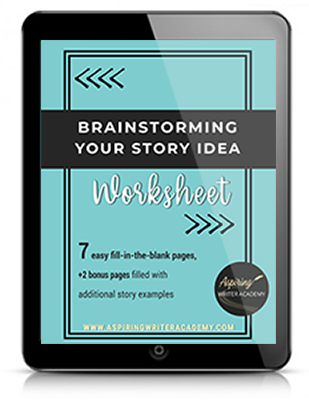
ENTER YOUR EMAIL BELOW
TO GET YOUR FREE
"Brainstorming Your Story Idea Worksheet"
7 easy fill-in-the-blank pages,
+ 2 bonus pages filled with additional story examples.
A valuable tool to develop story plots again and again.
Our Goal for Aspiring Writer Academy is to help people learn how to write quality fiction, teach them to publish and promote their work, and to give them the necessary tools to pursue a writing career.
If you have any questions or would like to leave a comment below, we would love to hear from you!
Other Blog Posts You May Like
Basic Story Structure: How to Plot in 6 Steps
Behind the Scenes: Interview with the Authors of the “Sew in Love” Collection
Our Inspiration For Writing A Historical Novella Collection
Brainstorming Story Ideas: Where to Find Them
Why We Started Aspiring Writer Academy: Our Story
Scene & Sequel: The Secret to Plotting an Epic Novel
Scene & Sequel: The Secret to Plotting an Epic Novel (Part 2)
Writing Fiction: How to Develop Your Story Premise
12 Quick Tips to Write Dazzling Dialogue
10 Questions to Ask When Creating Characters for Your Story
Macro Edits: Looking at Your Story as a Whole
Do you find it difficult to create compelling antagonists and villains for your stories? Do your villains feel cartoonish and unbelievable? Do they lack motivation or a specific game plan? Discover the secrets to crafting villains that will stick with your readers long after they finish your story, with our How to Create Antagonists & Villains Workbook.
This 32-page instructional workbook is packed with valuable fill-in-the-blank templates and practical advice to help you create memorable and effective antagonists and villains. Whether you're a seasoned writer or just starting out, this workbook will take your writing to the next level.

is a multi-published author, speaker, and writing coach. She writes sweet contemporary, inspirational, and historical romance and loves teaching aspiring writers how to write quality fiction. Read her inspiring story of how she published her first book and launched a successful writing career.

